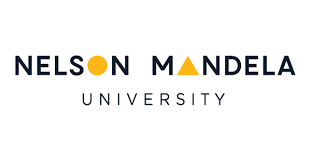Mandela University Colloquium Advocates for Universal Access to Education
To advance universal access and drive disability awareness and advocacy at institutions of higher education, such a mandate should not merely reside within a small, dedicated unit, but rather be an institutional task that forms part of its very fibre.
This was the overall sentiment of the various speakers and contributors at a two-day colloquium, hosted by Nelson Mandela University’s Universal Accessibility and Disability Services unit (UADS) last week.
The aim of the colloquium was to foster disability awareness and advocacy through student-centred engagements under the theme “Advancing Universal Access”, with delegates including university staff, students, academics from various institutions and public sector representatives.
Setting the scene, Mandela University’s Dean of Students, Luthando Jack, highlighted how the struggle for universal access was a humanitarian endeavour.
“Universal accessibility and inclusive education are international imperatives. The United Nations (UN) Sustainable Development Goals (SDGs) commit all nations to ensuring equal access, non-discrimination and removal of barriers to education for persons with disabilities,” he said.
“To this end our university is positioning itself as a space and place that is inviting, welcoming and retaining students with disabilities.”
Significant strides have been made when it comes to advancing universal access at Mandela University, however, there was still a lot of ground to cover before achieving the ideal outcomes.
These include a policy for reasonable accommodations for students with disabilities, dedicated rooms in student residences, provision of assistive technologies, influencing the building of norms and standards to embed the values and principles of universal access, and the recently launched Ilitha Free Expressions Space as a self-healing and wellness space.
Jack said the main barriers to advancing access and transformation are unliberated mindsets towards the principles of universal accessibility.
“Our new frontier of endeavour is the institutionalisation of the notion of inclusive education as everybody’s business in the University and not just a mandate of the Student Life and Development (SLD) directorate. Shifting mindsets is not easy,” he said.
“We need to work in partnership and to activate students with disabilities to act in unison as truly capable human beings at the centre of defining, pursuing and realising their individual and shared destinies.”
Speaking on the colloquium objectives, UADS head Dr Nosiphiwo Delubom said it sought to showcase the transformative work that UADS is doing at the University and inviting other stakeholders within and beyond the university space for conversations that will advocate for persons with disabilities and creating awareness on significant issues.
“The conference helped develop and strengthen collaborative opportunities with stakeholders that support the advancement and promotion of the university agenda on transformative issues such as universal accessibility and learning,” she said.
“Furthermore, the colloquium sought to allow, promote and encourage student-led initiatives that will stimulate conversation on employability of graduated students with disabilities in the working space.”
One of the colloquium discussions was about the transition of first year students into university, with Walter Sisulu University student Babalwa Mqwengana and University of Fort Hare student Zukisa Zokwe as panellists.
Mqwengana, who is a third-year social work student, was born blind and had difficulty finding and being placed in school. This saw young Mqwengana only start formal schooling at eight years old, attending the Efata School for the Blind and Deaf in Mthatha.
“I was the top achiever among Special Schools learners in 2020. Even though there were challenges, I survived. I started first year at WSU in 2021. It was hard being a blind student at that time. It was challenging, but I like challenges,” she said.
Mqwengana said she had declined admission to three other universities, opting to go to WSU despite its challenges with accommodating persons with disabilities.
“People would ask why I would want to go to a university that does not accommodate me and my needs, and I would say that they’ll learn to accommodate me when I’m there,” she said.
She said she chose to pursue a degree in social work in order to bridge the gap between able and disabled students.
Zokwe recalled how his transition to university was quite challenging, with some of these encounters almost causing him to drop out of his studies.
“Universities generally call on people who are highly capable to join them, forgetting that we can’t be categorised the same. As a disabled, I therefore cannot be benchmarked against someone without the same challenge as I have,” he said.
“We battle with everyday demons as people with disabilities. So, before you seek to understand me, first seek to accommodate me. When you accommodate me, you will learn to understand me as time goes.”
The University plans to host more such engagements about universal access, inviting a variety of stakeholders to be part of the conversation.

